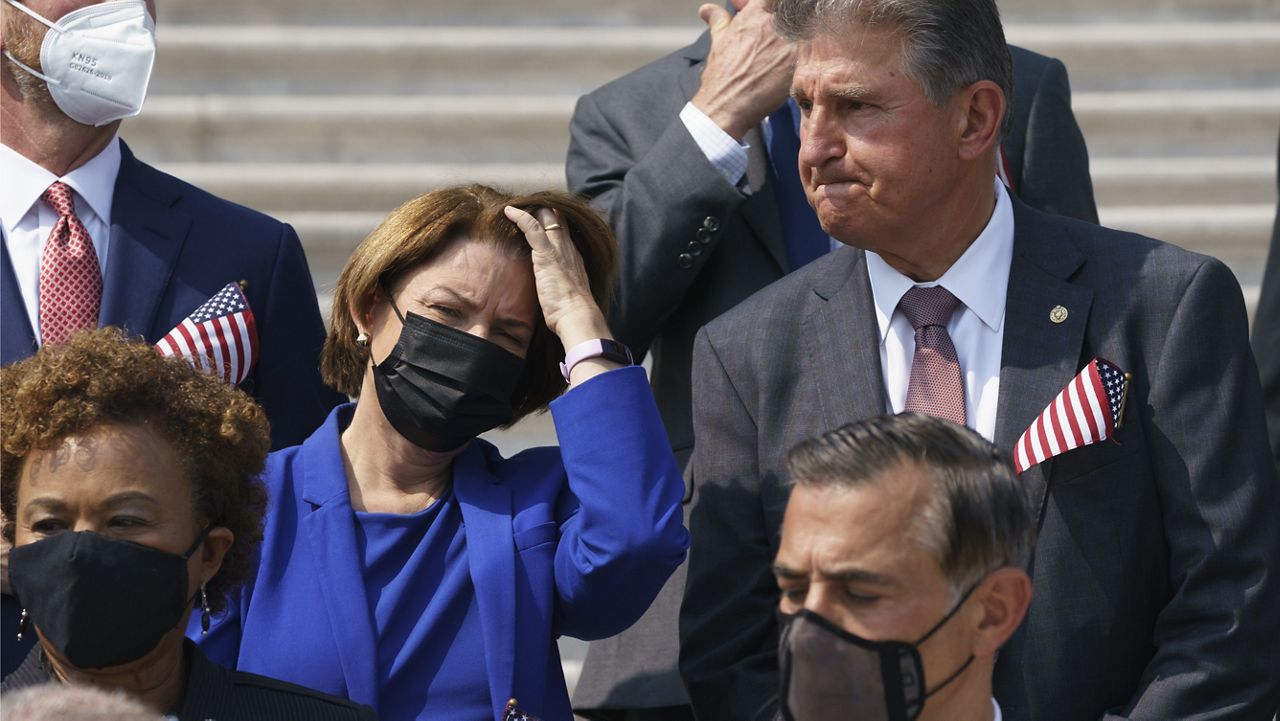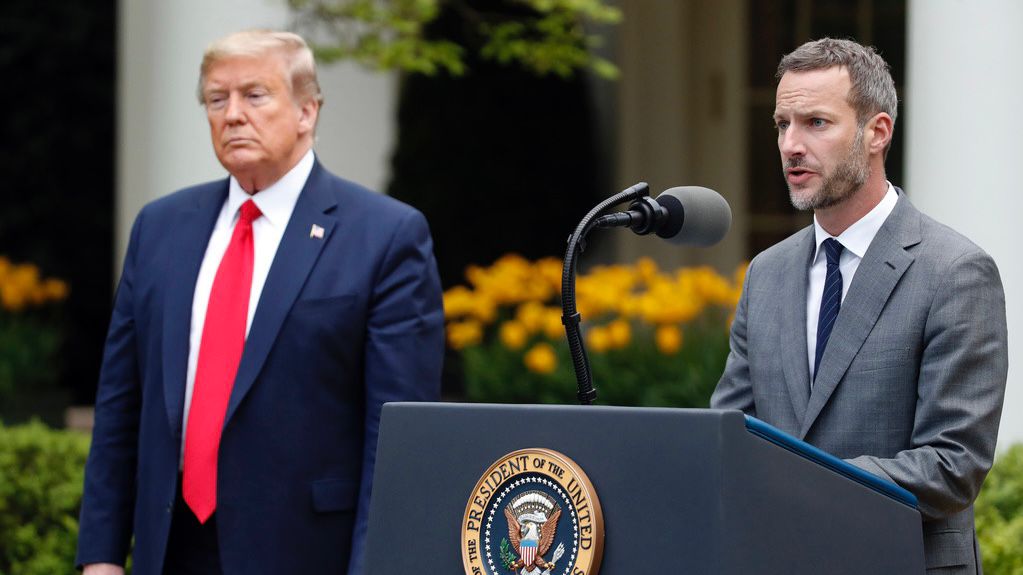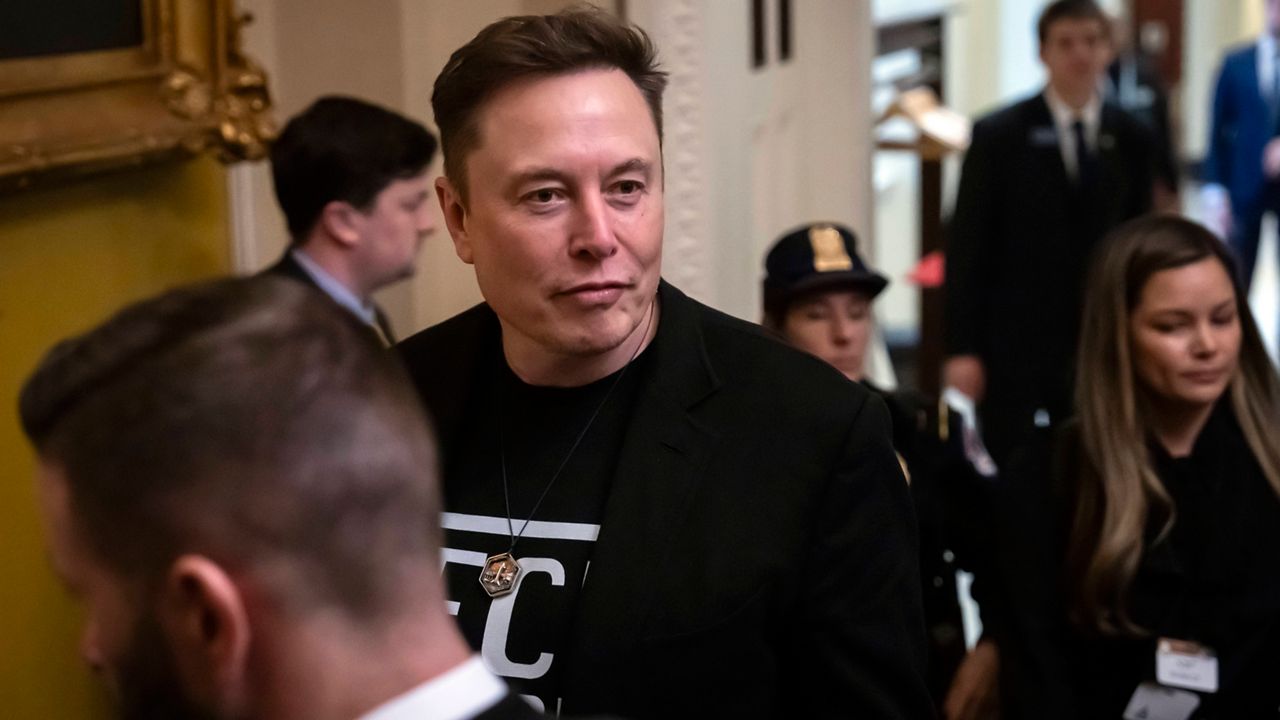Senate Democrats on Tuesday unveiled their latest attempt to pass comprehensive election reform at the federal level — a compromise between progressives and moderates in the caucus in the hopes of presenting a united front in favor of voting rights.
The proposal, known as the Freedom to Vote Act, contains a number of provisions from the sweeping For the People Act, which Senate Republicans blocked earlier this year.
Unlike the For the People Act, this proposal comes with the backing of key centrist Sen. Joe Manchin of West Virginia, who was the lone member of the Democratic caucus to oppose the exhaustive election reform bill.
Unveiled by former presidential candidate and Minnesota Sen. Amy Klobuchar, the bill would:
- Make Election Day a federal holiday
- Create a national standard for states that require voter identification
- Ensure at least 15 days of early voting, including two weekends
- Create new automatic voter registration systems, mandate same-day voter registration
- Overhaul Congressional redistricting
- Bolster voting system security
- Mandate donor disclosure
“Following the 2020 elections in which more Americans voted than ever before, we have seen unprecedented attacks on our democracy in states across the country,” Klobuchar said in a statement Tuesday. “These attacks demand an immediate federal response.”
What the bill does not contain is a mandate for nationwide voter ID, a provision Manchin backed, opting instead for what the West Virginia lawmaker called “flexible voter ID requirements” in a statement.
“The right to vote is fundamental to our democracy and the Freedom to Vote Act is a step in the right direction towards protecting that right for every American,” Manchin wrote. “As elected officials, we also have an obligation to restore peoples’ faith in our democracy, and I believe that the common sense provisions in this bill — like flexible voter ID requirements — will do just that.”
The bill would "present a broad set of identification cards and documents in hard copy and digital form" for those voting in person, according to a statement.
Other Democratic lawmakers to back the bill included Sen. Raphael Warnock, D-Ga., one of the most staunch proponents of voting rights in the chamber, Sen. Jon Tester, D-Mont., Sen. Alex Padilla, D-Calif., and Sen. Angus King, I-Maine.
Despite the expected universal support from the chamber’s 50 Democratic members, the bill is unlikely to receive the backing of Republicans, all but dooming the bill’s prospects thanks to the chamber’s 60-vote filibuster threshold.
Senate Majority Leader Chuck Schumer, D-N.Y., said Monday that he intends to hold a vote "as soon as next week" on the bill.
"Time is of the essence," Schumer said Monday, adding that Sen. Manchin "is working with Republicans to secure support."
"Republicans formed a wall of total opposition against any progress on voting rights in the United States Senate," Schumer said on the floor of the chamber Tuesday. "But Republicans' refusal to work with us is no excuse for not getting something done."
"No one can look at these restrictions with a straight face and say they have a legitimate purpose," he added. "They have only one goal. It's a despicable goal, it's a nasty goal: to make it harder for younger, poorer, non-white and typically Democratic voters to access the ballot."
The looming battle over voting rights will no doubt reignite calls to reform the filibuster, which moderate Sens. Manchin and Kyrsten Sinema of Arizona have resisted. Activists have urged Democrats to carve out
Democrats say the legislation is needed to combat the wave of restrictive voting provisions enacted by GOP-led state legislatures nationwide, but Republicans have accused Democrats of attempting a "power grab" with sweeping voting legislation.








